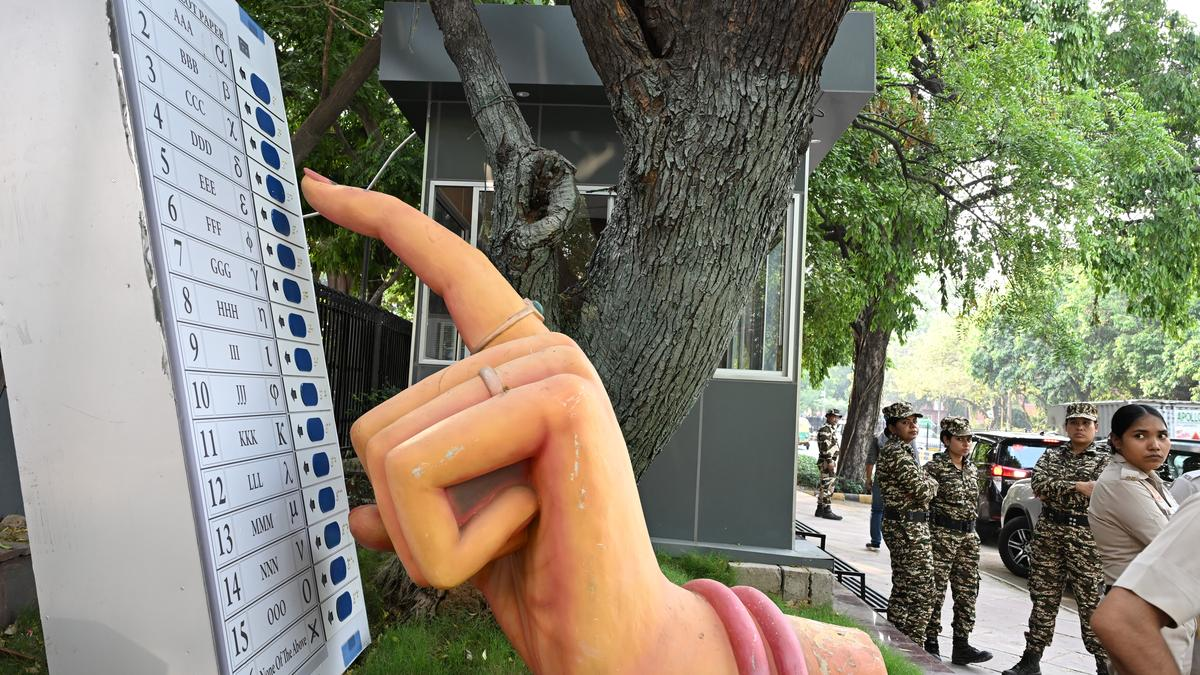Free Courses Sale ends Soon, Get It Now


Free Courses Sale ends Soon, Get It Now



Copyright infringement not intended
Picture Courtesy: https://www.thehindu.com/news/national/can-parties-be-de-recognised-or-de-registered-explained/article68183892.ece
Context: The Election Commission of India (ECI) has expressed concern about the Model Code of Conduct (MCC)'s enforcement in India, suggesting that celebrity campaigners should provide a good example rather than undermine society.
Details
Registered Parties
Recognised Parties
Issues with the Registered Unrecognised Political Party (RUPP)
MCC Violations and ECI's Powers
Recommendations for Improvement
Conclusion
Must Read Articles:
REGISTERED UNRECOGNISED POLITICAL PARTIES (RUPPs)
Source:
|
PRACTICE QUESTION Q. With the increasing use of social media and online platforms for political campaigning, how does the Election Commission monitor and regulate the spread of misinformation, hate speech, and other forms of unethical or illegal campaign practices in the digital space, while upholding the principles of free speech and fair electoral practices? |
© 2024 iasgyan. All right reserved